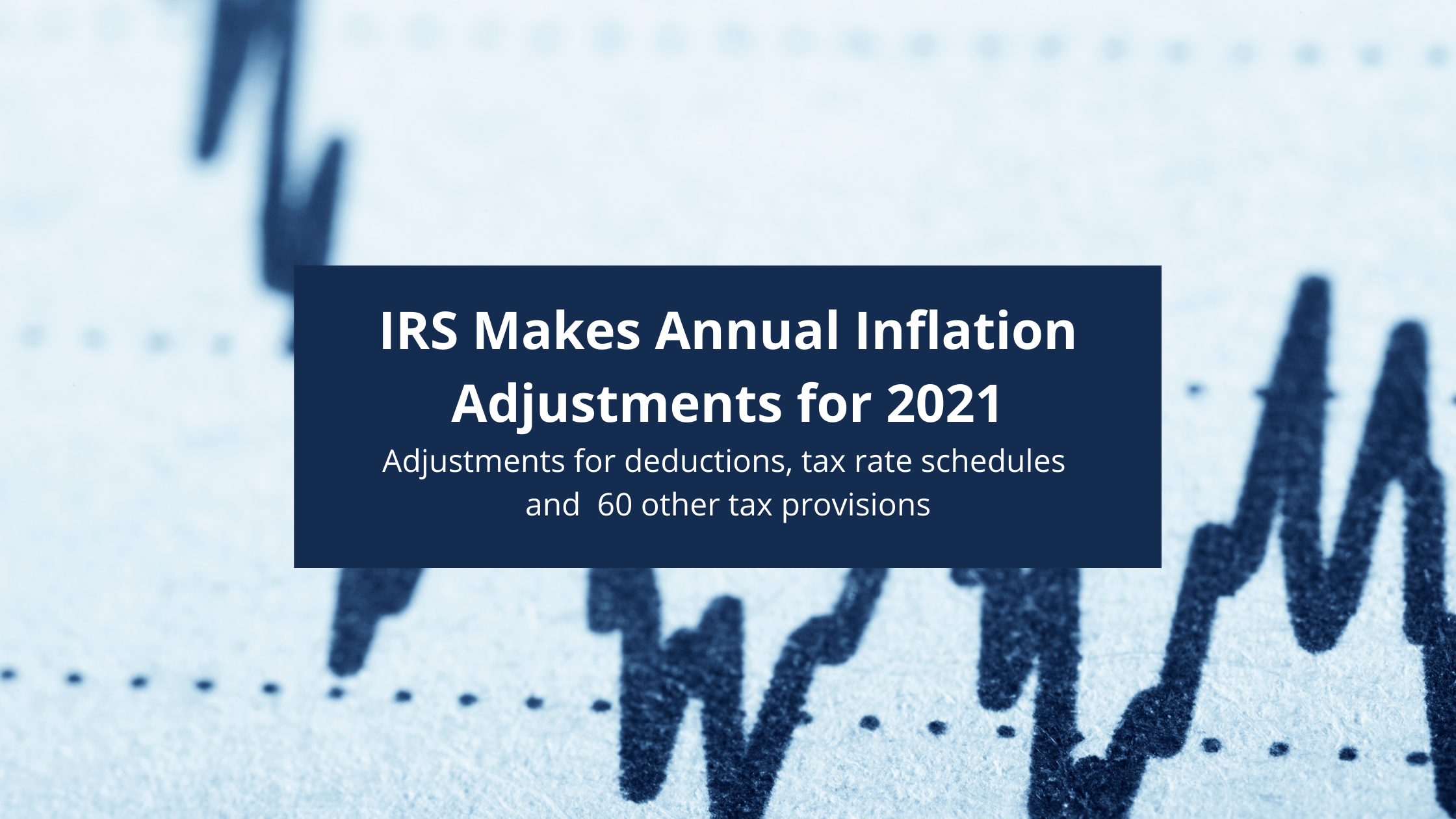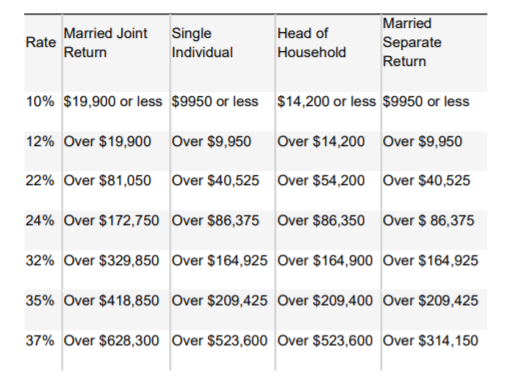The New IRS Tax Rates and Deductions for 2021
Submitted by Neville Associates on February 1st, 2021
Amidst all the pandemic news and 2020 election drama, many might have missed that the IRS also quietly published new 2021 tax rates in late October and a there are plenty of changes that will impact taxpayers in 2021.
While it’s more than a year away (these changes are for 2021 returns filed by taxpayers in 2022), there are a few changes that you should know about.
Rules Not Yet Extended
It is very important that taxpayers realize that the 2020 rules enacted during the pandemic – namely the rules surrounding borrowing, distributions and the waiver of Required Minimum Distributions – will not be effective in 2021 unless Washington passes new legislation.
Standard Deductions
In very simple terms, the standard deduction is a specific dollar amount that reduces your taxable income.
The standard deduction for 2021 will be $25,100, an increase of $300, for married couples filing joint returns;
The standard deduction for 2021 will be $12,550, an increase of $150, for single taxpayers’ individual returns and married individuals filing separately;
The standard deduction for 2021 will be $18,800, an increase of $150, for heads of households.
2021 Tax Brackets
The tax rates and tax brackets for 2021, adjusted for inflation, are provided as follows:

Medical Savings Accounts
Certain thresholds and ceilings for participants in Medical Savings Accounts will also be increased:
For self-only coverage, the plan’s annual deductible for 2021 must be at least $2,400 and no more than $3,600 with a maximum out-of-pocket expense of $4800, an increase of $50 for each amount.
For family coverage, the deductible must be at least $4,800 but no more than $7,150, an increase of $50 for both amounts.
The out-of-pocket expense maximum for family coverage will increase by $100 to $8,750 for 2021.
Retirement Plan Contributions
The IRS also announced the 2021 limitations on retirement plan contributions and their phase-out ranges. The limitations for employee contributions to employer retirement plans will remain at $19,500, and the catch-up contributions for those 50 and older will remain at $6500. For SIMPLE retirement accounts the limitation will remain $13,500.
Although the deductible amount for IRA contributions will remain at $6000 (with catch-up contributions for those 50 and older remaining at $1,000) the phase-out levels have adjusted upwards. And the phase-out levels depend on whether or not one is also an active participant in another employer retirement plan.
If an individual is an active participant in an employer retirement plan, the deduction phases out for adjusted gross incomes between $66,000 and $76,000 for single individuals and heads of households, and between $105,000 and $125,000 for married couples filing joint returns.
For an IRA contributor who is not an active participant in another plan but whose spouse is an active contributor, the phase out ranges from $198,000 to $208,000.
For a married active contributor filing a separate return, there is no adjustment and the phase-out range will remain $0 to $10,000.
These phase-outs do not apply if neither are covered by an employer-sponsored retirement plan.
Your Financial Professional
The fact is that the CARES Act was by far the largest economic bill in America’s history and the second COVID relief details are part of a bill that is over 5,000 pages long. Further, with a federal tax code that is over 2,500 pages, no wonder tax strategies can be overwhelming.
So, before you go down a path that might not be in your best interest long–term, make sure you consult with your financial professional to determine how the new tax changes and new tax bills might impact you and your family.
Important Disclosures
All information is believed to be from reliable sources; however LPL Financial makes no representation as to its completeness or accuracy. This information is not intended to be a substitute for specific individualized tax advice. We suggest that you discuss your specific tax issues with a qualified tax advisor. Content in this material is for general information only and not intended to provide specific advice or recommendations for any individual. This article was prepared by FMeX. LPL Tracking #1-05098034

